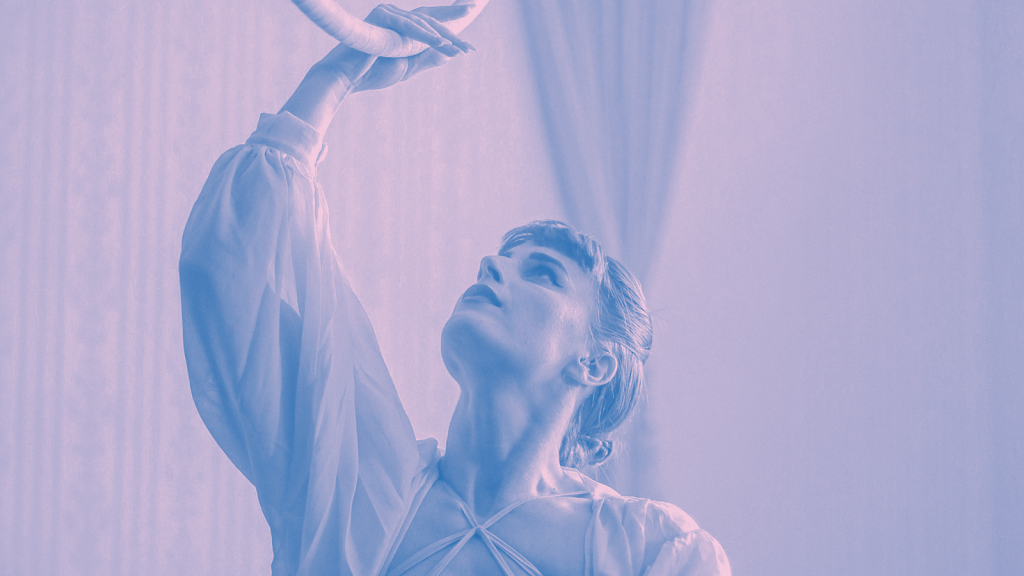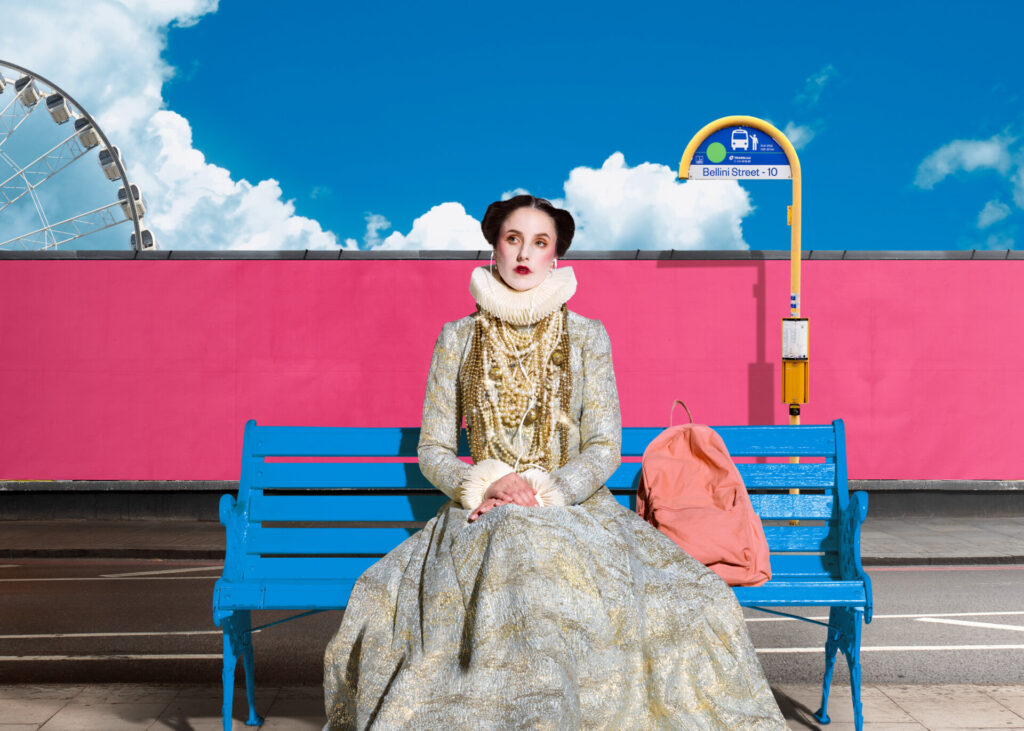
‘Fake News / Dumb Views’ // Backbone Youth Arts
‘Fake News, Dumb Views’ was exposing.
A beloved venue for growing and emerging artists, Backbone Youth Arts in East Brisbane is no stranger to quirky theatre. Their annual festival, entitled ‘Fake News, Dumb Views’, continues a tradition of showcasing unique and emerging local talents and new Australian work.
Held at an old Bowls and Community Club turned creative space, the festival, entitled ‘Fake News, Dumb Views’, takes audiences away from the echo chambers of the real world and into the artists weird, wonderful (and often confronting) imaginations.
Conventional theatre styles are stripped away at this festival; performers, musicians and artists run amok, giving them the chance to display their passions and tell their stories. From an installation about lizard people and the bird conspiracy to short performances covering a range of topics, audiences get the feeling that the festival aims to expose the truth, no matter how bizarre, and to pull back the curtain on this theatrical world.
Again You Have Trusted Me
Sarah Stafford’s ‘Again You Have Trusted Me’ was both hilarious and confronting. The sixty-minute absurdist documentary-styled performance covered Stafford’s family and their relationships, in particular the death of her grandfather. It provided interesting anecdotal perspectives that highlighted how individuals deal with difficult personal issues.
From the get-go, Stafford tears down the fourth wall between the stage and audience; appearing carefree, sitting on audiences laps, asking questions and shooting back clever replies – even asking the audience why anyone would go to the theatre when they could be alone at home and intimate with their partner. “Think about it, really think about it,” she probed further, lazily sipping a glass of wine. Combining sharp wit and brutal honesty, Stafford’s deliciously self-deprecating humour had the audience in tears of laughter.
But ‘Again You Have Trusted Me’ revealed a deeper level to her no-care attitude. Utilising interviews with her family members projected onto the back wall, audiences learnt about their struggle with grief and how they learnt to cope. Stafford would often be edited into these interviews, interrupting the conversation by dancing around silently, further explaining that her casual ‘laugh it off’ attitude was a way of coping with the family’s dysfunction. The contrast of humour with serious moments had the audience wondering whether to laugh or sympathise.
Changes in coloured lighting from stark reds and blues gave insight to her emotions, while the use of different props and apparatuses helped solidify her messages. Drinking champagne and smoking while cycling on an exercise bike represented her attempts to juggle life, while rolling listlessly around on a hoverboard kept her staging fresh and engaging. The climax (driven by epic, classical background music) had Stafford turning tables and causing a general mess when her facade broke. However, after sharing a personal letter from her father, she had the strength to clean up the chaos and metaphorically rebuild herself.
Aside from technical issues – “Five minutes,” Sarah told us as the house lights came on – one moment had an interview projected in the background while Stafford texted friends. It was difficult for the audience to keep up with the texts and the interview at the same time, distracted equally from both projections, despite it making sense for Stafford’s character to ignore the events of the performance.
Ultimately, ‘Again You Have Trusted Me’ was relaxed and informal, pushing audience members into Stafford’s raw, stripped back world. On the outside. her piece may not be all that it seemed, with moments hinting at deeper problems or uncovered messages. Audiences will no doubt have different interpretations of her reality, presented with shocking honesty and doused in cheeky humour.
Skin Deep
‘Skin Deep’, presented by the Skin Deep Collective, was an important, upfront exploration of colourism across the years. A mix of physical theatre, drama and song, ‘Skin Deep’ gave audiences a snapshot into the discrimination against minority groups, particularly in relation to skin colour and beauty standards. The show featured heartbreaking and often blunt stories from history and cast members, which helped showcase the longevity of colourism as a serious problem.
Entering the space, a documentary about colourism, or prejudice against skin tones, was projected onto the back of the stage, informing audience members about the inequalities and impacts of people favouring lighter skin and using products to make their skin appear ‘whiter’. With a cast of seven, each wore white clothes, symbolising the world in which lighter skin is desired more than darker skin. The play wove between friends discussing love, adolescence and their culture, to parodies of YouTubers explaining how to ‘make a slave’. Each moment took audiences deeper into the prejudice experienced by black people, and consistently related back to the recurring theme of colourism.
A standout moment was the human zoo, where the female ensemble posed as sideshow attractions due to their lighter or darker skin tones. A ringmaster stalked around them, staring, prodding and pushing them. The commanding voice of the ringmaster with the feeble voices of the women promoted the impactful message that lighter skin tones are looked upon favourably, seen by those in history as a marvel or strange beauty. All cast members gave a powerful presence to the critical themes that the performance discussed. In particular, the female ensemble not only displayed talent in their performances but allowed for deeper analysis of the messages, delving into female beauty standards and discrimination against women.
‘Skin Deep’ is still being developed, and would benefit from giving more consideration to the staging and dialogue. Scene changes were often awkward and drawn out, with lights going down, shuffling of set pieces and footsteps. Scenes would begin with little indication as to the setting and what was happening, with context revealed towards the middle or end of the action. For example, a moment between Aurora Liddle-Christie and Prince Brown’s characters was revealed to be a date and was taking place at a restaurant (a waiter asking to take their order entered during the scene) but the staging had the two characters standing together as though they had met in the street. Additionally, characters continued explaining issues of colourism, despite it being glaringly obvious in its delivery. Dialogue would morph from casual chatter into structured, formal talk, as if the character had started reciting an essay. Furthermore, the storyline of the seven friends was lost halfway through the play, with other historical and personal snapshots taking over. With this plotline providing honest, relatable insight into colourism, it felt a shame to be forgotten about without any form of resolution.
Regardless, ‘Skin Deep’ was a moving yet alarming piece of theatre that featured a range of talent and ability. While colourism still remains a prevalent issue today, the Skin Deep Collective aimed to make others aware of its reach and impact, explaining the distinct and important differences within racism. The performance made clear that beauty is skin deep and nobody should be ashamed of their skin colour – nor who they are as a person.
Backbone Festival’s ‘Fake News, Dumb Views’ performed until Sunday, 24 November 2019. The collective offers many great opportunities and more information can be found on Backbone’s Website.






